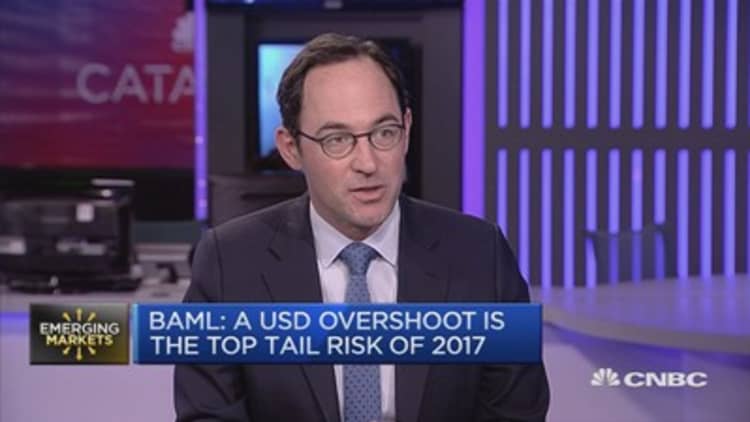South Korea's economic growth retreated further in the last quarter of 2016 as the construction investment and private consumption that had supported the economy for most of the year fizzled out.
Gross domestic product for the October-December period rose 0.4 percent in seasonally adjusted terms on-quarter, the Bank of Korea said on Wednesday, slowing from a 0.6 percent rise in the September quarter and a 0.8 percent gain in the June quarter.
The 0.4 percent growth in seasonally adjusted terms beats the median forecast of 0.3 percent from a Reuters survey of 17 economists.
In annual terms, GDP rose 2.3 percent in the fourth quarter, down from a 2.6 percent rise in the third quarter.
The economy expanded 2.7 percent in 2016 from a year earlier, matching the bank's growth target and edging up after a 2.6 percent rise in 2015.

"While 2.7 percent expansion is a notable pick-up, the construction investment failing to grow shows domestic demand is sluggish," Kim Doo-un, a Seoul-based economist with Hana Financial Investment said.
"An expansion of 0.4 percent (on-quarter) is quite low given that it's the weakest in a year and a half," he added.
Construction investment fell by a seasonally adjusted 1.7 percent during the October-December period after a 3.5 percent jump three months earlier, while private consumption expanded just 0.2 percent, slumping from a 0.5 percent rise in the September quarter.
Exports failed to lift growth in the December quarter, slipping by 0.1 percent after rising 0.6 percent in the previous three months.
By sector, manufacturing led the overall growth with a 1.8 percent gain on-quarter, while agriculture and fisheries declined 2.8 percent. Services remained unchanged from three months earlier.
The central bank said earlier that private spending would be weaker in 2017 as uncertainties arising from an influence-peddling corruption scandal involving President Park Geun-hye, and interest rate hikes expected from the U.S. Federal Reserve, are affecting consumer sentiment.
Park was impeached by parliament in December and the Constitutional Court will make a decision soon whether to uphold the vote. A presidential election will be automatically triggered within 60 days of the court's decision if she is removed from her position.
Credit costs rising in line with U.S. interest rates will increase the burden of household debt repayment, putting private consumption growth at risk.
The BOK sees growth at 2.5 percent this year, driven by a recovery in exports and facilities investment, even if global trade growth weakens on the fear or the reality of deepening protectionism.

